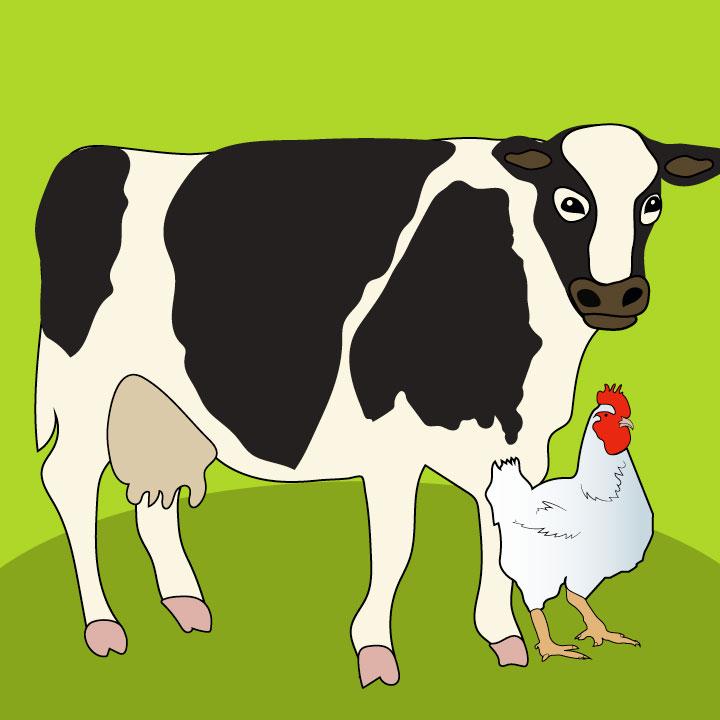A new study from Faunalytics suggests that people who interact with farm animals at sanctuaries are more likely to consume fewer animal products.
Farm Sanctuary, America’s premier farm animal sanctuary and advocacy organization, joined Faunalytics to release the study, which showed that 70% of non-vegans who went on a tour through Farm Sanctuary said they would make dietary changes to reduce consumption of animal products. Comparatively, only 53% said they would change their diets prior to taking the tour.
You can see the study by clicking right here.
Farm Sanctuary followed up with participants in the survey two months later, and non-vegans reported eating less chicken, turkey, beef, pork, fish, shellfish, eggs and dairy, with many correspondents crediting the tour for that change.
Tourists didn’t only make active lifestyle changes. They also changed opinions. While 52% of participants said humans contribute to farm animal suffering before the tour, that number went up to 69% after the tour.
78% of omnivores said they were willing to cook vegetarian or vegan meals, which is up 12% from the 66% who were willing before the tour. 48% also said they were willing to discuss veganism and vegetarianism with others, but 73% said they’d had conversations with others about the subject at the time of the two month check-in.
The study took place at Farm Sanctuary locations in New York and California with over 1,200 subjects, and Farm Sanctuary hopes to continue progress by showing that tours can be both fun and effective.
Tom Beggs, a Faunalytics research scientist and the lead author of the study, said the public is becoming more aware of the way animals are treated in the food system, and a global shift is happening.
“The results from our study confirm something that most farm animal sanctuaries are already aware of: having meaningful interactions with farmed animals encourages people to empathize with them, and more importantly, to consider them as sentient individuals and not food,” Beggs said.
The study also shows that it’s important to find a balance between light-hearted and educational when sending a message about animal cruelty. The best way to spread the word is to make it easy to take immediate action by doing things like providing recipes, selling plant-based ingredients and foods and offering opportunities to get more involved in the cause.
Megan Watkins, CEO of Farm Sanctuary, said industrial agriculture is a major threat to our current world.
“The critical role that farm sanctuaries play in modeling a compassionate relationship with animals and inspiring positive lifestyle change cannot be overstated,” Watkins said. “Whether you visit in-person or virtually, the best way to glimpse the future is to visit a farm sanctuary.”
Faunalytics’ recent Animal Product Impact Scales list revealed the products causing the most suffering to animals in the United States. You can see that list by clicking right here.
To learn more about Faunlytics, you can click right here, and to learn more about Farm Sanctuary, you can click right here.






